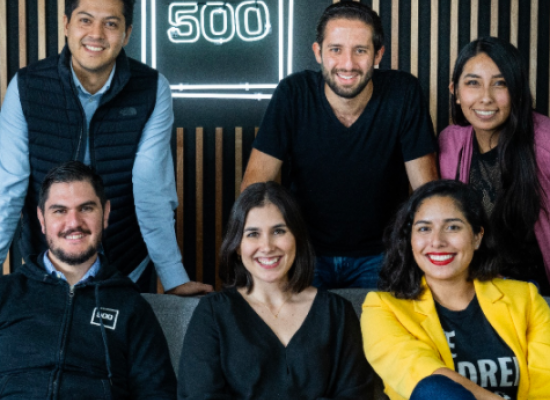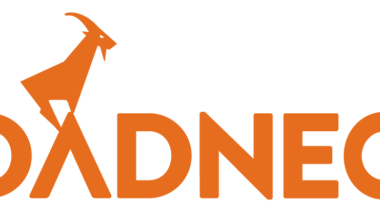Translated from Forbes Mexico.
Santiago Zavala, René Lomelí, and Didier Quiroz are the faces behind 500 Startups Latin America, a Silicon Valley fund that has made investments in 201 companies in the region in almost a decade.
Santiago Zavala has worked in the Mexican and Latin American startup ecosystem for 15 years, whether directly or indirectly. In 2006, he and a group of friends finished his mechatronics degree at the University of Monterrey, and started to work for different hacking software companies.
From there, he found himself connecting with many young people who had innovative ideas that they wanted to transform from paper into a reality, looking to technology to achieve that goal. But there was a problem. Up until then, there were very few investment opportunities for entrepreneurs in Mexico. Zavala suggested they change this.
In 2011, Mexican VCs was born, a small venture capital fund specifically for early-stage startups. The fund selected less than 10 companies, one of which ended up becoming Conekta, one of Mexico’s most successful fintechs.
Mexican VCs was made possible by the support of various investors including 500 Startups, a VC fund based in Silicon Valley. 500 Startups had already been considering branching out to the Latin American market, and Mexican VCs provided this stepping stone. Before the second batch, 500 Startups decided to make the move official and acquired Mexican VCs as their Latin American base.
“When we started to work with the US team in the first investment they had little expansion outside the region, which is what made them so interested in our project. We made a great team, and we soon realized the great opportunity that existed for our companies,” said Zavala.
A New Start
In 2013, and René Lomelí and Didier Quiroz joined Santiago to become the three partners of 500 Startups Latin America. A lot has changed since then. From just six companies, the fund now counts some 201 companies in its portfolio. 12 batches of startups from all over the region have undergone the acceleration program, held twice a year, and the company has now opened its third fund.
The first fund ran from 2013 to 2015 and invested in 79 companies, such as Conekta, Clip, Konfío, 99 Minutos, and Facturama. The second fund ran from 2016 to 2019 and invested in a further 74 companies, including Kinedu, Atenea, and Yaydoo. The third fund opened In 2019 and has so far included 21 companies such as Jüsto, Baubap, and Terapify.
The company aims to reach a further 109 investments through the third fund over the next two years, which would bring the total to 130 startups. There have also been an additional 27 investments made outside of the funds.
“Each time we have achieved more. In 2011 there were 70 applications to the program, whereas last year we had 1,957 Latin American startups apply, from which we had to choose only 10,” said Lomelí.
The 500 startup fund has invested in a diverse range of companies from across Latin America; 61% from Mexico, 12% from Argentina, 8% from Colombia and Chile respectively, 4% from Peru, 3% from the United Stated by LatAm founders, and 4% from other countries including Spain. Of course, not all startups have gone on to be successful. Around 50, which is 24%, failed in the ecosystem.
Regional expansion
Nevertheless, the continued work of the Latin American office has allowed Santiago, René, and Didier to not only support high-potential companies but also witness first-hand the explosion of the entrepreneurial ecosystem in Mexico and Latin America. The landscape has changed significantly since the first days of 500 Startups.
“At the start, it was only really Argentina and Brazil that had any sort of startup ecosystem. Mexico has slowly grown to become a major part of that. It was impossible then to imagine a fintech such as Kavak emerging, but now there are so many impressive companies that have emerged,” said Quiroz.
And Mexico is not the only country. Colombia, Chile, and Peru have all experienced huge developments in their ecosystems, which the 500 Startups partners put this down to two key changes. The first is the quality of entrepreneurs emerging in the region who are launching themselves and their companies into the ecosystem.
“I think the starting point of the entrepreneurs and their companies is completely different today to what it was nine years ago when everything was an experiment. Now there are better opportunities for education and training which is resulting in more prepared entrepreneurs and increasingly specialized companies that understand the problems of the ecosystem,” Quiroz explained.
It was for this reason that the fund chose to change direction and adapt its acceleration program from its traditional basis to focus instead on creating a better connection with companies and building a network that would help them grow.
“At Somos Lucha, a name that that represents our new aims, we have removed the education component and changed it for a more hands-on approach through which we can really push these companies to grow and scale, taking advantage of our network, connections, and knowledge that we have acquired over the years working with more than 200 companies”, explained René Lomeli.
The second major change is the access to capital, which before was very limited. With capital, startups have much greater opportunities for growth and development. The 500 Startups Latam founders believe that it is only a matter of time before the region is competing on equal footing with other more developed markets.
“The market continues to strengthen and grow each day. Time is the only barrier to Latin America joining the same levels as other global markets,” Zavala concluded.
Translated from Forbes Mexico.



